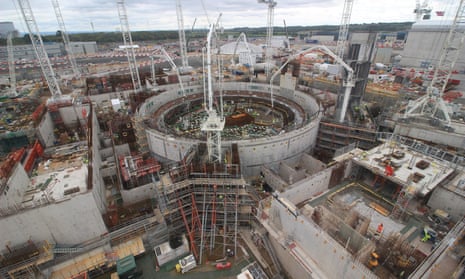The Labour party has called for the government to commit to “buy British” when sourcing steel for big infrastructure projects such as railways and nuclear power stations.
Projects such as the HS2 high-speed railway and Hinkley Point C nuclear power station would be expected to buy more British steel under the policy, which is backed by the under-pressure industry.
Labour also wants the government to set a target for UK steel content in big public works and give UK steel preferred status in contracts.
The government this month set up a steel procurement taskforce led by the former Barclays chair Lord Grimstone to look at ways of boosting the industry, which is seen as a key supplier to defence as well as infrastructure. The government has identified a need for nearly 5m tonnes of steel over the next decade for infrastructure.
However, it has so far stopped short of directly mandating that public projects use UK-based suppliers such as Liberty, or rivals including Indian-owned Tata Steel or British Steel, which was rescued a year ago by China’s Jingye.
Stronger “buy British” guarantees in procurement notices would increase the direct benefit to the UK of infrastructure spending, said Lucy Powell, the shadow minister for business and consumers.
“Having domestic steelmaking capacity is a cornerstone of our national security, economic prosperity and our fight to tackle the climate emergency, yet ministers are failing to back UK steelmaking with weak procurement practices that undermine these efforts,” she said.
Labour’s intervention comes with questions hanging over the future of Liberty Steel, the UK’s third-largest steelmaker. Liberty’s owner, the industrialist Sanjeev Gupta, is trying to secure new loans after the collapse of its major backer, Greensill Capital. Gupta’s GFG Alliance is trying to negotiate a standstill agreement with Greensill’s administrators.
A pledge to buy more British steel could potentially help Liberty Steel. For instance, steel bars produced in Rotherham would be candidates for building railways such as HS2 as well as offshore wind turbines.
Many of the workers in Rotherham have been furloughed owing to lower demand in particular from the aerospace industry during the pandemic. It is understood that about a third of Liberty’s 5,000 workers have been furloughed as the company seeks to keep cash in the business until it can find new funding.
Labour said its analysis of government data showed that £25m, almost a quarter of spending on steel for infrastructure, went abroad in 2018-19, the last year for which figures are available.
UK Steel, a lobby group for the industry, backed the call for work to remain in the UK where possible. It calculates that 1,000 tonnes of steel produced in the UK helps to support about 4.5 jobs directly. Overall there are about 33,000 British steelworkers, plus another 74,000 workers in closely linked jobs, the lobby group said.
“Government should always seek to promote British foundation industries, such as steel, through sensible, targeted and job-boosting public procurement,” said Gareth Stace, UK Steel’s director general.
“When government-funded projects buy foreign steel, this money is then lost to the UK economy forever. We welcome proposals that keeps UK taxpayers’ money in steel communities and the UK economy.”
David Bailey, a professor of business economics at the University of Birmingham, said increased procurement from the UK would help the industry, but added that government action was also needed on business rates and energy costs that are 62% higher than German rivals, according to industry calculations from 2019.
“The UK government used to hide behind state aid rules,” Bailey said, referring to EU law. “It has no excuse not to act now.”
A spokesperson for the Department for Business, Energy and Industrial Strategy said: “Steel will play a critical role in providing the infrastructure necessary to drive a green economic recovery and project jobs,” highlighting wind farms, nuclear power stations and electric cars.
“The government is currently reviewing its public procurement rules to ensure the system is better able to meet the needs of this country, whilst complying with our international obligations,” the spokesperson said.
